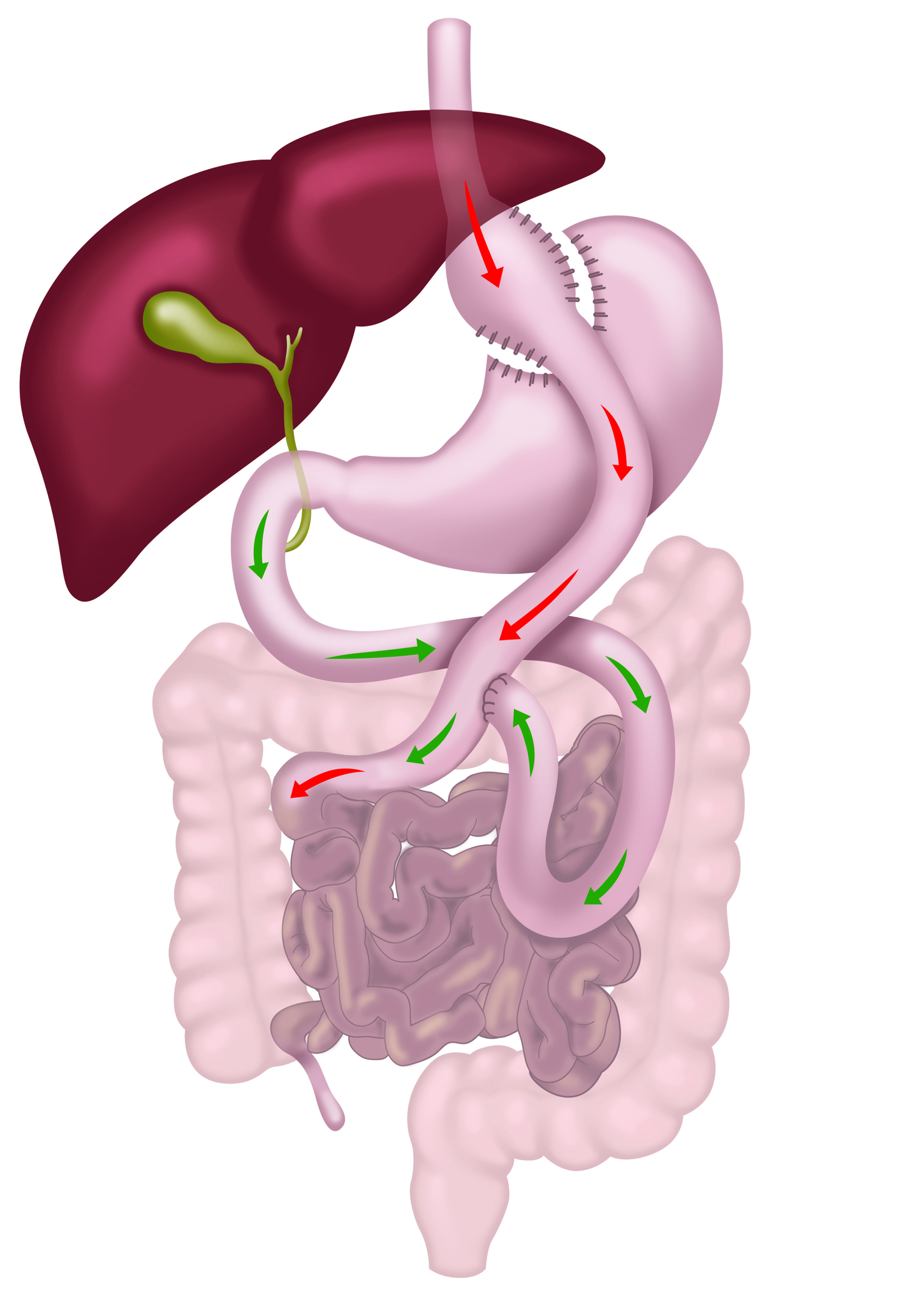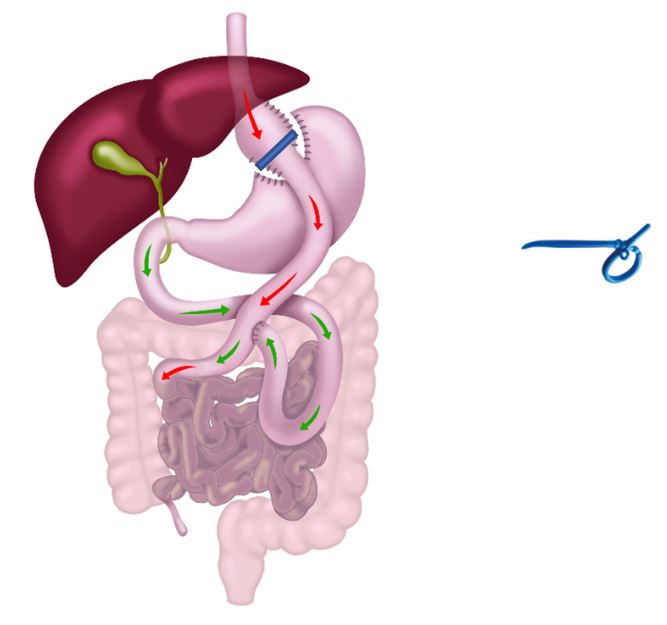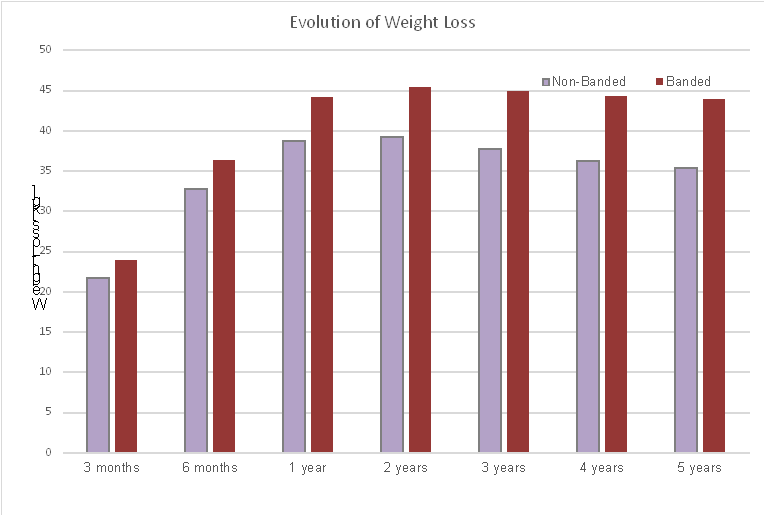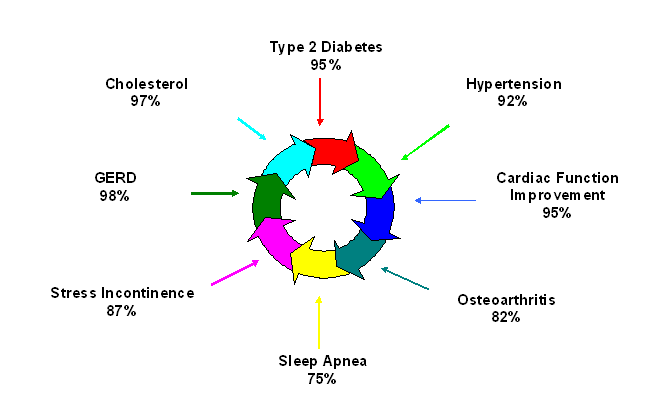Gastric bypass

Gastric bypass is an operation in which the stomach is reduced, and a small part of the digestive tract is diverted. Gastric bypass is therefore a combined procedure that aims to restrict food intake and reduce food absorption.
During the operation, a small gastric pouch is separated from the stomach at the entrance to the stomach. This gastric pouch is the size of two fingers. The rest of the stomach just stays in place. The small stomach pouch is then connected to the small intestine, usually with staples. By reducing the size of the stomach, you eat less and absorb less food.
Because of the reduced absorption of food and the vitamins it contains, daily intake of multivitamins is necessary after this operation, especially in the first 6 months after the procedure.
In addition, after this operation, you should severely limit your intake of sugars and alcohol, as you may experience symptoms of gastric dumping. Gastric dumping can cause severe weakness, sweating, palpitations and, in exceptional cases, diarrhea. When drinking alcohol, you should bear in mind that you become intoxicated much more quickly.
Banded gastric bypass
A variant of gastric bypass is banded gastric bypass. This procedure is identical, the only difference being that a ring is placed around the pouch to prevent dilation of the small intestine and reduce the risk of weight regain.

Results
Weight
Studies on a large number of patients have shown that on average 77% of excess weight is lost one year after the procedure. For example, in a 50 kg overweight patient, this means a weight loss of 38 kg after 1 year.
After 10 years, there is still an average weight loss of 60%. This is mainly due to the patient’s diet, so the result can vary greatly from one person to another.
A banded gastric bypass allows patients to lose 10% more weight after 5 years, with a significantly lower risk of re-operation due to weight issues.

Other beneficial effects
Over 90% of co-morbidities (diseases caused by obesity) disappear or improve following this procedure: high blood pressure, type II diabetes, back pain, sleep apnoea, depression, and others.

Advantages of gastric bypass:
- Gastric bypass is reversible.
- Rapid feeling of satiety when eating.
- Reduced sensation of hunger in the first few months or even years after the procedure.
- Dumping: these are complaints that occur immediately after a meal and can range from a vague feeling of discomfort to sweating, palpitations and nausea. These complaints are mainly triggered by eating sugars, drinking alcohol, or eating too quickly. As a result, patients will avoid these things and eat more slowly, leading to better weight loss.
- Rapid weight loss with an average loss of ¾ of the excess weight. Weight loss stops after 1 to 1 ½ years depending on your obesity.
- High blood pressure, diabetes and high cholesterol will improve. Diabetes and sleep apnea may even disappear. You’ll have more energy and a stronger self-image. Your sex drive will increase again.
- Your quality of life improves.
Disadvantages of gastric bypass
- Dumping: sometimes the dumping can be so strong that patients can lose too much weight.
- Vitamin deficiency can occur in the medium term.
- For this reason, regular check-ups are important. During this check-up, we will ask you questions about your condition and check your blood values. These checks are just as important as your weight loss!